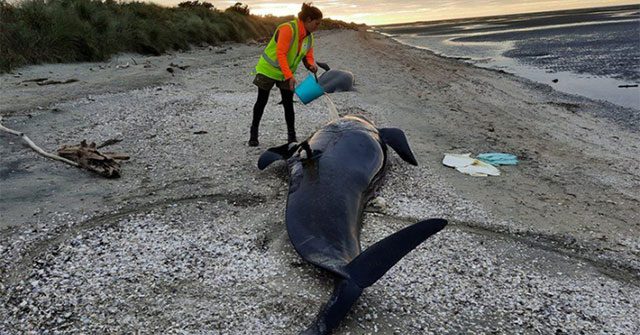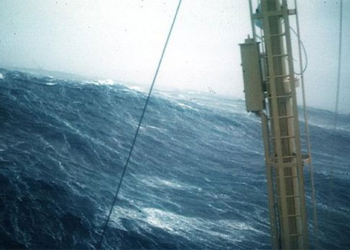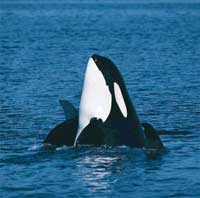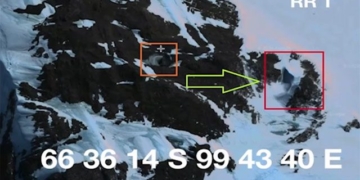Dozens of pilot whales have died after becoming stranded on a beach at the northern tip of the South Island, the New Zealand Department of Conservation has reported.
A total of 34 pilot whales were found stranded along the Farewell Spit coastline in Golden Bay on the South Island of New Zealand on the morning of March 17, with at least 31 of them confirmed dead despite the rescue efforts by conservationists.
“It’s heartbreaking! Whale strandings are a natural phenomenon. The cause of this incident is still not well understood, but Golden Bay is a hotspot for strandings due to Farewell Spit wrapping around the northern entrance of the bay, creating wide tidal flats,” the New Zealand Department of Conservation stated.

Rescue workers attempting to save a stranded pilot whale at Farewell Spit. Photo: New Zealand Department of Conservation
According to spokesperson Dave Winterburn, the rescue team, which included medical personnel and conservationists, initially succeeded in rescuing five pilot whales and returning them to the ocean. However, just a few hours later, two of them became stranded again and did not survive.
Although referred to as whales, pilot whales (Globicephala) are actually a genus within the oceanic dolphin family. They are found in oceans worldwide, but their numbers are declining due to overfishing and habitat pollution. There are only two existing species of Globicephala: the long-finned pilot whale (G. melas) and the short-finned pilot whale (G. macrorhynchus). The stranded animals at Farewell Spit on Thursday were identified as belonging to the long-finned species.
Both G. melas and G. macrorhynchus are notorious for mass strandings around the world. At Farewell Spit alone, there have been at least 11 instances of pilot whale strandings in the past 15 years. The most catastrophic event occurred in February 2017, when nearly 700 pilot whales washed ashore, resulting in around 250 deaths, according to BBC.





















































